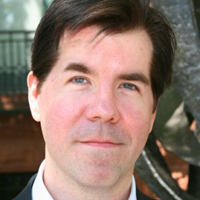Michele Bachmann, our future president, believes she has the apt moniker for the Obama years. It is, she says, “a gangster government.” This is, of course, an unconscionable, unprovoked insult to hardworking gangsters everywhere.

On what possible thread of logic can the good congresswoman compare the dull ditherers of D.C. to the savage efficiency of Al Capone, not to mention the real gangster governments in Tripoli, Pyongyang, and Havana? “Ma Barker” Clinton is too busy printing up Hillary 2016 bumper stickers to fit people for cement shoes. Joey “Loose Lips” Biden trips over his own tongue so often that he doesn’t have time to cut off anyone else’s. And one need only observe a single meeting between the president and the Republican leadership to conclude that we didn’t exactly send Bugsy Siegel to the White House.
Most distressingly, Bachmann’s quest for alliteration has led her off the point completely: The Obama administration is not vulnerable to public opinion as a corrupt or sinister enterprise, but as an incompetent one. “Gomer Pyle government” would be more apt. Perhaps the Minnesota congresswoman came a bit closer to the target when she labeled Team Obama as the hapless Carter administration’s second coming. A fitting comparison, because our former president is sanctimonious enough to believe he is due for one.
Bachmann’s misfire, not so much offensive as it is depressing, speaks to a perennial problem in our public discourse: Why can’t political leaders on either side of the aisle effectively wield a dagger anymore?
When Franklin Roosevelt heard the rumor that he had appropriated a Naval warship to retrieve his dog, Fala, from the Aleutian Islands, he knew exactly how to deal with it, uttering a famously light-hearted retort. “These Republican leaders have not been content with attacks on me, or my wife, or on my sons,” he said with tones of mock despair. “No, not content with that, they now include my little dog, Fala. Well, of course, I don’t resent attacks, and my family don’t resent attacks—but Fala does resent them!” As his audience dissolved in laughter, FDR effortlessly made his critics look like fools. What fun he might have had with the charge that he was a secret Muslim.
The damage to the president will predictably prove minimal. Indeed, as epithets go, it is hard to top America hater and accomplice to terrorism.
Ronald Reagan, Obama’s new crush, was a pro at deflating critics with a smile and a well-timed line, his most famous being his 1984 presidential debate response to attacks on his age: “I am not going to exploit, for political purposes, my opponent’s youth and inexperience.” Over the years the genial Gipper even managed to turn the awesome Soviet empire into a pitiful laughingstock.
Worthy too was conservative leader William F. Buckley. When a nettlesome liberal columnist continued to cause Buckley’s supporters offense, Buckley formed the mischievously named “National Committee to Horsewhip Drew Pearson,” complete with buttons and a sign wrapped around a horse. A memorable, all-in-good-fun way to make a point.
Those, alas, were the good old days. Absent a few current political commentators—the Christophers, Buckley and Hitchens, come to mind—we simply do not know how to land a good-spirited punch anymore. Humor has given way to humorlessness, sarcasm to sanctimony, irony to invective.
In the Clinton years, the president and first lady were accused not solely of being arrogant prevaricators but of being drug runners and murderers. Their operation, of Blumenthal, Carville, and Stephanopoulos, in turn, savaged Clinton critics as delusional gold diggers, sexual deviants, or desperate cogs in a grand, complicated conspiracy.
During the Bush era, Bush and Cheney were not simply wrong on public-policy matters, according to their critics, but torturers and war criminals to boot—so named by supposedly serious people, including senators and members of Congress. Such evil-minded rhetoric tends to trickle down. To wit, a Facebook page apparently established after Cheney’s recent heart surgery that is delicately titled, “I love knowing that Dick Cheney will be dead soon.”
Now another serious person—at least, as serious as a member of Congress is allowed to be these days—calls President Obama a gangster. The damage to the president will predictably prove minimal. Indeed, as epithets go, it is hard to top America hater and accomplice to terrorism. By far the most pungent attack waged against Obama in recent years has come not from any posturing, angry Republican but from Matt Damon. His comments, sincere in their disappointment, remind me of my new favorite riposte of all time. Asked to comment on a slew of inaccuracies in a book by famed Watergate reporter Bob Woodward, the actress and director Penny Marshall retorted, “It makes you think that Richard Nixon may have been innocent.”
Simple, elegant, and devastating. Maybe much-despised Hollywood can teach the GOP a thing or two after all.
Matt Latimer is the author of the New York Times bestseller, Speechless: Tales of a White House Survivor. He was deputy director of speechwriting for George W. Bush and chief speechwriter for Donald Rumsfeld.





